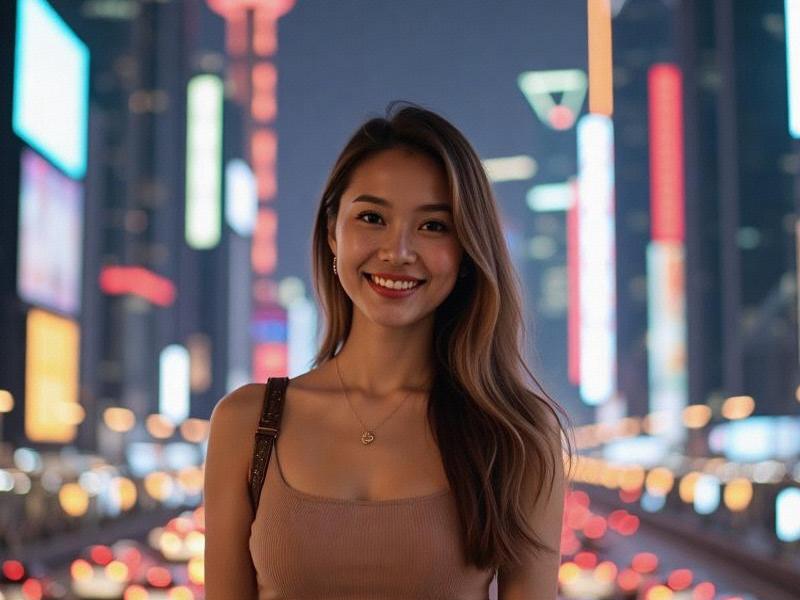
The glow of neon signs along Shanghai's Huangpu River tells only part of the story. Beneath the glittering surface of China's most cosmopolitan city lies a rapidly transforming entertainment landscape where traditional notions of nightlife are being rewritten. Shanghai's entertainment clubs - once simple venues for karaoke and drinks - have evolved into complex ecosystems serving multiple social and business functions.
The geography of Shanghai's nightlife reveals strategic positioning. Along the Bund, historic buildings house discreet members-only clubs like M1NT, where CEOs negotiate billion-dollar deals in private rooms equipped with both karaoke systems and Bloomberg terminals. Across the river in Pudong, venues like Flair Rooftop blend business entertainment with Instagrammable cityscapes, catering to finance professionals who value both networking opportunities and social media visibility.
Industry statistics showcase this transformation. While the total number of licensed entertainment venues in Shanghai has decreased by 22% since 2020 (down to 2,150 establishments), average revenue per venue has surged by 53%, reaching ¥18.2 million ($2.5 million) annually. This paradox reflects the market's premiumization trend - fewer but more lucrative operations targeting Shanghai's growing population of high-net-worth individuals.
阿拉爱上海 KTV innovation has been particularly remarkable. Traditional karaoke boxes have evolved into "acoustic experience centers" like Echo Chamber, where sound-engineered rooms feature adjustable acoustics and AI-assisted vocal enhancement. The business model has similarly transformed - corporate accounts now generate 42% of revenue at premium KTV chains, with firms like Tencent and Fosun maintaining dedicated entertainment budgets at these venues.
Regulatory navigation has become an art form. Following China's anti-extravagance campaigns, clubs have developed sophisticated compliance systems. Many now employ "hospitality compliance officers" to ensure operations meet regulations while maintaining service standards. The most advanced venues feature legally distinct zones - separate licenses for dining areas, karaoke rooms, and lounge spaces within the same establishment.
Cultural fusion reaches new heights at hybrid venues like The Library. By day, it functions as a co-working space for creative professionals; by night, the same leather armchairs host mixologists crafting tea-infused cocktails while traditional erhu musicians perform over electronic beats. This "day-to-night" model has proven particularly successful, showing 72% higher occupancy rates than single-purpose venues.
夜上海419论坛 Technology integration has accelerated dramatically. Facial recognition systems now manage VIP access at establishments like Bar Rouge, while blockchain-based membership programs at Club 3.1 ensure exclusivity through NFT membership cards. Forward-thinking venues have implemented "smart inventory" systems - connected liquor bottles that track consumption patterns and automatically reorder stock.
Staff training reflects the industry's professionalization. Leading clubs now recruit multilingual hospitality graduates from top universities, offering salaries competitive with five-star hotels (¥40,000/month for experienced hosts). Training programs emphasize not just service excellence but also legal compliance and data security when handling high-profile clients' information.
上海娱乐联盟 The pandemic's lasting impact appears in unexpected ways. Many venues have retained "hybrid entertainment" options developed during lockdowns - VirtuClub's VR system allows remote guests to "attend" events via headsets, complete with digital drink ordering. Health-conscious offerings have also emerged, with "wellness lounges" featuring organic cocktails and advanced air purification systems.
Looking ahead, analysts identify key trends: deeper integration of Chinese cultural elements (like tea ceremony rooms adjacent to dance floors), expansion of venue-exclusive alcohol programs (where clubs commission custom spirits from local distilleries), and the rise of "nomadic luxury" pop-up clubs that rotate between premium locations.
As Shanghai prepares to host major international events, its entertainment clubs stand ready to showcase a new model of urban nightlife - one that balances global sophistication with local authenticity, regulatory compliance with creative innovation, all while maintaining that distinctly Shanghai blend of business and pleasure that makes the city's nightlife truly unique.
